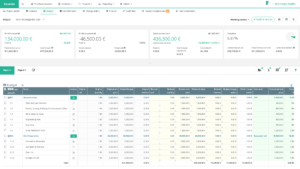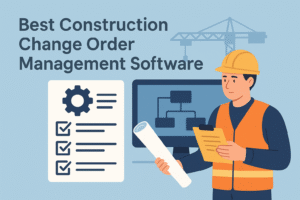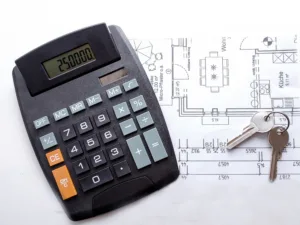Construction project management is the backbone of successful construction projects. It’s the art of orchestrating various elements, resources, and stakeholders to deliver projects on time, within budget, and to the satisfaction of clients. The role of a construction project manager is demanding yet rewarding, requiring a unique set of skills and qualities to navigate the complexities of the industry.
In this comprehensive guide, we aim to equip construction project managers with the knowledge and tools they need to enhance their project management skills. Whether you’re a seasoned professional looking to brush up on your abilities or a new project manager seeking guidance, this article will provide valuable insights to help you excel in your role.
Why is effective construction project management so crucial? Well, imagine a construction project without a capable manager at the helm. It could easily spiral out of control, leading to cost overruns, delays, quality issues, and unsatisfied clients. A skilled project manager brings order, structure, and leadership to the construction site, ensuring smooth operations, efficient resource utilization, and the timely completion of projects.
The purpose of this article is simple: to help you become a better construction project manager. We will explore the key traits that successful project managers possess, delve into essential project management techniques, and provide practical advice on effective team management. Moreover, we’ll discuss the pitfalls to avoid, as learning from mistakes is equally important for growth and improvement.
So, whether you’re seeking to refine your planning and scheduling skills, enhance communication with stakeholders, or leverage technology for better project outcomes, this guide has you covered. By implementing the strategies and best practices outlined here, you can elevate your project management capabilities and achieve greater success in the dynamic world of construction.
Now, let’s dive in and discover the key traits that make a construction project manager truly exceptional.
Table of Contents
Key Traits of a Successful Construction Project Manager
Being a successful construction project manager requires a diverse range of skills and qualities. While technical expertise is undoubtedly important, it is the combination of leadership, communication, and problem-solving abilities that sets exceptional project managers apart. Let’s explore the key traits that contribute to their success.
1. Leadership and Communication Skills
A good construction project manager must be a capable leader who can inspire and motivate their team. Strong leadership entails setting a clear vision for the project, defining goals, and effectively communicating expectations to team members. By fostering a positive work environment, project managers can encourage collaboration, creativity, and productivity among their team.
Moreover, exceptional communication skills are paramount in construction project management. Project managers need to communicate with various stakeholders, including clients, subcontractors, architects, and government agencies. Clear and concise communication helps to prevent misunderstandings, facilitates problem-solving, and ensures everyone is on the same page throughout the project lifecycle.
2. Time Management and Organization
Time is a precious resource in construction projects, and project managers must possess excellent time management and organizational skills. They must be adept at creating and maintaining project schedules, identifying critical paths, and allocating resources efficiently. Effective time management enables project managers to meet deadlines, prevent delays, and keep the project progress on track.
Organizational skills are equally vital for managing the numerous moving parts of a construction project. From permits and approvals to procurement and logistics, project managers need to stay organized to ensure smooth operations. Implementing systems for document management, task tracking, and resource allocation can significantly contribute to a project manager’s success.
3. Problem-Solving and Decision-Making Abilities
Construction projects are bound to face challenges and obstacles along the way. As a project manager, your ability to navigate these hurdles and make informed decisions is crucial. Effective problem-solving involves identifying issues, analyzing potential solutions, and implementing the best course of action. It requires critical thinking, creativity, and the ability to adapt to changing circumstances.
Decision-making in construction project management process involves evaluating risks, considering the project’s objectives and constraints, and making choices that align with the project’s best interests. Project managers must be able to make timely decisions and possess the confidence to stand by their choices, while also being open to feedback and course correction when necessary.
4. Technical Knowledge and Expertise
While leadership and soft skills are important, a strong foundation of technical knowledge is equally essential for a construction project manager. Understanding construction methods, materials, and techniques enables project managers to effectively communicate with stakeholders, evaluate project feasibility, and anticipate potential challenges.
Staying updated with industry standards, codes, and regulations is crucial for ensuring compliance and maintaining the highest quality standards in construction projects. Project managers should actively engage in professional development opportunities, attend industry conferences, and seek continuous learning to enhance their technical knowledge and expertise.
5. Team Building and Motivation
Successful project managers know that their team is the backbone of project success. Building and leading high-performing teams is an essential skill. This involves assembling a talented and diverse team, fostering a collaborative culture, and promoting open communication. Project managers must provide guidance, support, and mentorship to their team members, helping them develop their skills and excel in their roles.
Motivation is key to keeping the team engaged and committed to project goals. Recognizing and rewarding achievements, providing constructive feedback, and creating a positive work environment contribute to team motivation. A motivated team is more likely to go the extra mile, resulting in increased productivity and project success.
Essential Project Management Techniques
Effective construction project management requires the application of various techniques to ensure projects are planned, executed, and controlled efficiently. Let’s explore some essential project management techniques that every construction project manager should be well-versed in:
1. Effective Planning and Scheduling
A solid project plan forms the foundation of successful construction projects. It involves defining project scope, setting objectives, and outlining the tasks, milestones, and deliverables. Project managers should collaborate with stakeholders to develop a comprehensive plan that considers timelines, resource allocation, and dependencies.
Once the plan is in place, project managers need to create realistic schedules that reflect the project’s critical path and account for potential risks and delays. Utilizing project management software can greatly assist in creating and managing schedules effectively.
2. Budgeting and Cost Control
Construction projects are inherently financial endeavors, and project managers must have a firm grasp on budgeting and cost control. They need to accurately estimate costs, prepare detailed budgets, and monitor expenditures throughout the project lifecycle.
Implementing effective cost control measures involves regular tracking of project costs, identifying cost variances, and taking corrective actions when necessary. Project managers should also be proactive in seeking cost-saving opportunities without compromising project quality and safety.
3. Risk Management
Construction projects are prone to various risks and uncertainties that can impact project outcomes. A skilled project manager anticipates and mitigates risks to minimize their impact on the project. This involves conducting thorough risk assessments, identifying potential hazards, and developing risk response strategies.
By proactively managing risks, project managers can prevent delays, reduce cost overruns, and enhance project resilience. Regular monitoring and reassessment of risks throughout the project’s duration are crucial to stay ahead of any emerging challenges.
4. Quality Assurance and Control
Delivering a high-quality construction project is a priority for every project manager. Implementing robust quality assurance and control measures ensures that the project meets or exceeds the required standards and specifications. This involves establishing quality control processes, conducting inspections, and performing regular audits.
Project managers should foster a culture of quality among the project team and subcontractors, emphasizing the importance of adhering to quality standards at every stage of the project. Clear documentation and documentation management play a key role in ensuring quality control processes are followed and documented.
5. Stakeholder Management
Successful construction project managers understand the significance of effective stakeholder management. They actively engage with stakeholders, such as clients, contractors, suppliers, and regulatory authorities, to ensure their expectations are met and conflicts are resolved promptly.
Regular communication, progress updates, and addressing concerns in a timely manner are vital for maintaining positive stakeholder relationships. Project managers should prioritize stakeholder engagement, foster open lines of communication, and proactively manage expectations to build trust and collaboration.
Things Not to Do as a Construction Project Manager
While knowing what to do is important, it is equally crucial to understand what not to do as a construction project manager. Avoiding certain pitfalls can help you steer clear of common mistakes and ensure smooth project execution. Let’s explore some of the things you should avoid as a construction project manager:
1. Micromanagement Pitfalls
Micromanaging your team can be counterproductive and demoralizing. While it’s important to stay involved and informed, excessively monitoring every task and decision can stifle creativity, diminish autonomy, and hinder team performance. Trust your team members, provide clear expectations, and empower them to take ownership of their responsibilities.
2. Lack of Communication with Stakeholders
Communication breakdowns can lead to misunderstandings, delays, and conflicts. Failing to communicate effectively with stakeholders, including clients, subcontractors, and team members, can result in misaligned expectations, missed deadlines, and unsatisfied clients. Keep an open line of communication, provide regular updates, and be proactive in addressing concerns and resolving issues.
3. Ignoring Safety and Regulatory Compliance
Construction projects come with inherent safety risks, and it’s the responsibility of the project manager to prioritize safety. Neglecting safety protocols and regulations can lead to accidents, injuries, and even legal repercussions. Ensure that safety guidelines are communicated and followed throughout the project. Stay updated with regulatory requirements and work closely with safety professionals to create a safe working environment.
4. Inadequate Documentation and Record Keeping
Proper documentation is vital for effective project management. Failing to maintain accurate records can lead to disputes, delays in payment, and legal complications. Keep detailed records of project activities, contracts, change orders, and communication with stakeholders. Use project management software to streamline documentation processes and ensure easy access to crucial project information.
5. Poor Conflict Resolution Strategies
Construction projects often involve multiple stakeholders with differing perspectives and interests. Failing to address conflicts in a timely and constructive manner can result in escalated tensions, project delays, and strained relationships. Develop strong conflict resolution skills, listen to all parties involved, and seek win-win solutions that prioritize project objectives while considering the needs and concerns of stakeholders.
By avoiding these common pitfalls, construction project managers can foster a positive work environment, enhance team collaboration, and ensure the successful delivery of projects.
Strategies for Effective Team Management
Successful construction project management relies heavily on effective team management. As a project manager, your ability to build a cohesive and motivated team can significantly impact project outcomes. Let’s explore some strategies for effective team management:
1. Building and Leading High-Performing Teams
A project manager plays a crucial role in assembling a skilled and diverse team. Look for individuals with the right expertise, experience, and attitude that align with the project’s requirements. Foster a sense of camaraderie and collaboration among team members to promote a positive and productive work environment.
Lead by example, demonstrating professionalism, dedication, and strong work ethics. Encourage open communication, provide support, and create opportunities for professional growth and development. By nurturing a high-performing team, you can foster innovation, productivity, and project success.
2. Clear Communication and Expectation Setting
Effective communication is the foundation of successful team management. Clearly communicate project objectives, expectations, and roles to team members. Ensure that everyone understands their responsibilities, project milestones, and deadlines. Encourage open dialogue and provide a platform for team members to voice their ideas, concerns, and suggestions.
Regularly update team members on project progress, changes, and important decisions. Utilize various communication channels, such as meetings, emails, and project management software, to facilitate effective information sharing and collaboration.
3. Delegation and Empowerment
Delegation is a key skill for effective team management. Identify the strengths and capabilities of team members and delegate tasks accordingly. Empower individuals to take ownership of their assigned tasks, allowing them to demonstrate their expertise and contribute to the project’s success.
Provide clear instructions, resources, and support when delegating tasks. Trust your team members to deliver quality work and be available for guidance when needed. Effective delegation not only eases your workload but also empowers team members, fostering their professional growth and boosting their confidence.
4. Recognizing and Rewarding Achievements
Acknowledging and appreciating the efforts and achievements of your team members can go a long way in boosting morale and motivation. Celebrate milestones, commend exceptional performance, and publicly recognize individual and team accomplishments.
Offering rewards, such as bonuses or recognition programs, can further incentivize high performance. Regularly provide constructive feedback, highlighting areas of improvement and offering guidance for growth. By creating a culture of recognition and appreciation, you foster a positive team dynamic and inspire continued excellence.
5. Resolving Team Conflicts
Conflicts are bound to arise in any team setting. As a project manager, it’s crucial to address conflicts promptly and effectively. Encourage open and respectful communication among team members, facilitating discussions to resolve conflicts constructively.
Listen to all parties involved, consider different perspectives, and mediate conflicts impartially. Seek win-win solutions that balance the needs and concerns of team members while prioritizing the project’s objectives. A swift and fair resolution of conflicts helps maintain a harmonious and productive work environment.
By implementing these strategies for effective team management, you can harness the collective skills, expertise, and motivation of your team to drive the success of your construction projects.
Embracing Technology in Construction Project Management
In today’s digital age, technology plays a vital role in construction project management. Embracing technology can enhance productivity, streamline processes, and improve project outcomes. Let’s explore how construction project managers can leverage technology for better results:
1. Construction Management Software and Tools
Construction management software offers a wide range of functionalities to simplify project management tasks. From project planning and scheduling to document management and collaboration, these tools provide a centralized platform for efficient project execution. Construction management software enables real-time communication, automates routine processes, and provides valuable insights through data analysis.
Project managers can utilize software solutions to track project progress, manage budgets, monitor resource allocation, and generate reports. By embracing construction management software, project managers can streamline operations, reduce errors, and enhance overall project efficiency.
2. Building Information Modeling (BIM) and Digital Collaboration
Building Information Modeling (BIM) is a technology-driven process that enables the creation of detailed digital representations of a construction project. BIM software allows project managers to visualize, analyze, and simulate project components, facilitating better decision-making and coordination.
Digital collaboration tools, such as cloud-based platforms and virtual meeting applications, enable seamless communication and collaboration among project stakeholders. Project managers can leverage these tools to facilitate remote collaboration, share project information in real-time, and ensure that all team members are working with up-to-date project data.
3. Real-Time Project Tracking and Reporting
Technology allows project managers to track project progress in real-time, enabling better visibility and control over project activities. Real-time project tracking tools provide instant updates on task completion, milestones, and project costs. This allows project managers to identify bottlenecks, address issues promptly, and make data-driven decisions.
Reporting tools provide project managers with comprehensive insights into project performance, enabling them to monitor key metrics, identify trends, and communicate progress to stakeholders. These tools facilitate the generation of customized reports, dashboards, and visualizations, providing valuable information for project evaluation and decision-making.
4. Benefits of Automation and Integration
Automation plays a significant role in improving efficiency and reducing manual work in construction project management. Routine tasks such as generating reports, issuing invoices, and updating project documentation can be automated, saving time and reducing the risk of errors.
Integration of different software applications and systems enhances data flow and eliminates duplication of efforts. Integrating construction project management software with accounting systems, procurement platforms, and other relevant tools allows for seamless data transfer, enabling project managers to access accurate and up-to-date information.
By embracing technology in construction project management, project managers can optimize processes, improve collaboration, and gain valuable insights to drive better project outcomes.
Continuous Learning and Professional Development
In the dynamic field of construction project management, continuous learning and professional development are essential for staying ahead and continuously improving your skills. Let’s explore some strategies to foster growth and enhance your expertise:
1. Staying Updated with Industry Trends
The construction industry is constantly evolving, with new technologies, methodologies, and best practices emerging regularly. As a project manager, it’s crucial to stay informed about the latest industry trends, regulations, and advancements.
Read industry publications, attend conferences, and participate in webinars to stay up-to-date. Engage with professional organizations and online communities to network with peers, share experiences, and gain valuable insights. By staying current with industry trends, you can adapt your approaches, incorporate new techniques, and drive innovation within your projects.
2. Networking and Collaborating with Peers
Networking and collaboration are valuable avenues for professional growth. Connect with other construction project managers, industry professionals, and experts in the field. Engage in discussions, share knowledge, and seek guidance from experienced individuals.
Participate in professional events, workshops, and forums where you can interact with like-minded professionals. Collaborate on industry projects or initiatives to broaden your perspectives and learn from others’ experiences. Building a strong professional network can provide support, open doors for new opportunities, and foster continuous learning.
3. Participating in Training Programs and Certifications
Formal training programs and certifications can enhance your project management skills and credentials. Consider enrolling in project management courses, whether online or in-person, to deepen your knowledge and gain practical insights.
Project management certifications, such as the Project Management Professional (PMP) certification, are highly regarded in the industry. These certifications validate your expertise and demonstrate your commitment to professional development. Invest in relevant certifications that align with your career goals and project management specialization.
4. Seeking Mentorship and Coaching
Mentorship and coaching relationships can provide invaluable guidance and support throughout your career. Identify experienced project managers or industry professionals who can serve as mentors. Learn from their experiences, seek advice on challenging situations, and benefit from their insights.
Alternatively, consider engaging a professional coach who specializes in project management. A coach can provide personalized guidance, help you set goals, and support your professional development journey. Their expertise and perspective can help you overcome obstacles, develop new strategies, and reach your full potential as a construction project manager.
By embracing continuous learning and professional development, you can stay ahead of industry trends, expand your skill set, and consistently enhance your effectiveness as a construction project manager.
Conclusion
Becoming a better construction project manager is a continuous journey of learning, growth, and refinement. By honing your leadership skills, embracing essential project management techniques, avoiding common pitfalls, and leveraging technology, you can elevate your capabilities and drive successful project outcomes.
Remember that effective project management goes beyond technical expertise. It requires strong leadership, clear communication, and the ability to navigate challenges with agility. By building high-performing teams, promoting a positive work environment, and prioritizing stakeholder management, you can foster collaboration and achieve project success.
Furthermore, stay up-to-date with industry trends, participate in training programs, and seek continuous professional development. Embrace technology to streamline processes, enhance productivity, and gain valuable insights into project performance. And never underestimate the power of networking, mentorship, and collaboration to broaden your horizons and learn from the experiences of others.
As you embark on your journey to become a better construction project manager, remember that success lies not only in the completion of projects but also in the relationships you build, the knowledge you acquire, and the impact you make in the construction industry.
So, equip yourself with the right skills, stay adaptable, and embrace a mindset of continuous improvement. By doing so, you’ll be well on your way to becoming an exceptional construction project manager who can drive the success of construction projects and leave a lasting mark in the industry.
Related posts
Read our other articles where you can find useful and relevant information about construction project management:
About the Author

Taavi Kaiv
Taavi Kaiv is a construction specialist with over ten years of experience in the construction industry. Taavi is an accomplished construction project manager with many successful projects that have been completed under his guidance. Taavi holds a master’s degree in construction management from the Tallinn University of Technology. View profile






